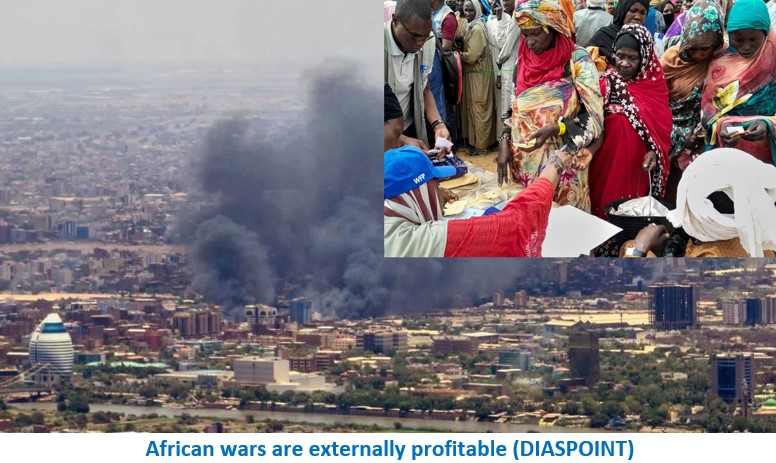The longer the Sudan conflict lasts, the higher the risk of a regional war
Post By Diaspoint | May 8, 2023

The 2019 Sudan uprisings that ousted long-time dictator Omar al-Bashir and installed a military-civilian transitional government gave hope that the northern African country could finally transition to democratic rule. The country has been ruled by the military for most of its independence since 1956.
But Sudan’s bumpy transition to democracy has come to a complete halt. The country now faces the worst conflict in its history as a full-blown civil war – with external entanglements – looms.
The Sudanese armed forces and a paramilitary force known as the Rapid Support Forces have declared war against each other, bringing the country to its knees. The main protagonists are two generals: Abdel Fattah al-Burhan, who leads the armed forces, and Mohamad Hamdan Daglo (known as Hemedti) of the Rapid Support Forces.
The hostilities have been most intense in the capital city, Khartoum. But violence has broken out in other provinces and is threatening to revive long-simmering violence in Darfur.
There is also a risk that the conflict could spill over to neighbouring countries and escalate into a regional conflict. Geographically, Sudan borders seven countries: Chad, the Central African Republic (CAR), South Sudan, Egypt, Eritrea, Ethiopia and Libya. Politically and culturally, it straddles the Middle East, North Africa and the Horn of Africa.
Regional powers and neighbours have lined up behind either of the two generals – or in some cases both. Egypt and Saudi Arabia have been backing al-Burhan. For their part, the United Arab Emirates (UAE) and General Khalifa Haftar of Libya have supported the Rapid Support Forces. But many other actors remain undecided.
There is a real possibility that regional and international actors will be arming different sides as they pursue their own, often competing interests. This could bring unprecedented shifts in the region’s already uneasy regional equilibrium, and test pre-existing alliances.
Regional and international actors are key in enabling – or preventing – the development of the crisis into a protracted civil war with regional dimensions. The best chance of halting Sudan’s slide into civil war lies in a united front of Western and regional powers, with Sudanese civil society groups putting pressure on the warring generals for a permanent ceasefire. And a return to a civilian-led transition. But as time goes by, many despair that Sudan will soon reach the point of no return.
Fretful neighbours
Egypt: Egypt had a long history of meddling in Sudan’s affairs. This has included supporting various military governments, as well as containing the Islamist resurgence in the 1990s. In 2019, when al-Bashir was deposed, Egypt supported al-Burhan in the transition. It didn’t want a military regime – and its ally – being replaced by a civilian democratic government. It feared that this would inspire Egyptians to do the same.
Read More from original source
